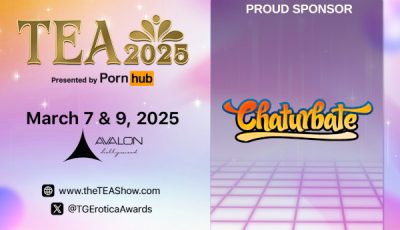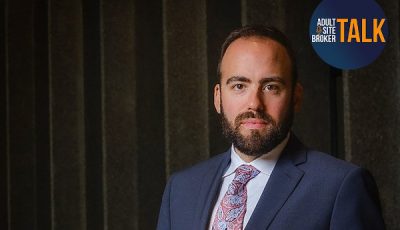Patrick A. Trueman: The “Public Health Crisis” Starts Here
Editor’s Note: This post is the sixth in a series by YNOT’s LynseyG that gives an overview of the history of anti-porn sentiment in America. Part one provided an overview, part two covered anti-porn crusader Charles Keating, part three examined the role of feminist author Andrea Dworkin in the American anti-porn movement, part four looked at former Attorney General Edwin Meese and part five addressed Judith Reisman, the pseudo-scientist behind the notion of “erototoxins.”
Patrick A. Trueman is both a true believer in the crusade against porn and a powerful force in government, private practice, and non-profit activism. His credentials are impressive, but his dogged focus on the evils of adult entertainment made by and for consenting adults is…odd, to say the least.
From 1988 to 1993, during George H.W. Bush’s administration, Patrick A. Trueman was the chief of the Child Exploitation and Obscenity Section (CEOS), Criminal Division, at the Department of Justice. Those five years seem to have been blissful for Trueman, who oversaw the aggressive pursuit of obscenity cases against pornographers. According to a 2008 article in the ABA Journal, CEOS “put seven of the nation’s largest pornography distributors out of business” under Trueman’s leadership. During that time, Trueman has also claimed that his division: obtained 50 convictions for sending “obscene advertisements” through the mail; undertook a “Los Angeles project” that convicted 20 producers and suppliers of obscene materials; and collected over $24 million in fines and forfeitures. The forfeitures were shared with local jurisdictions that helped them with their cases—”There are ways to motivate people,” he proudly told the ABA Journal.
“It was understood that this was a priority and it came from the top,” Trueman said of his glory days at the DOJ. But when Janet Reno became attorney general, he was disappointed that the DOJ decided to focus instead on child pornography—a focus which remains in place today. Most people would consider that a good thing. Especially people who make legal, adult porn—those people don’t want to see children exploited any more than anybody else.
But Patrick A. Trueman felt differently. He was deeply disappointed by this turn of events. “When I hear law enforcement authorities pit child pornography against obscenity, I see it as an excuse for doing nothing on obscenity crimes,” he told the ABA Journal.
Ever since, he has split his time between practicing law and flitting between high-level positions at influential non-profit NGOs. He was the executive director of Americans United for Life—an anti-abortion group. A legal counsel for the Family Research Council—a regressive group focused on a very narrow view of what counts as “family values.” He also served as the director of government affairs for the American Family Association, a Christian fundamentalist organization that vehemently opposes LGBTQ rights, abortion, and pornography. And now, he’s the president of the National Center on Sexual Exploitation (NCOSE)—a group formerly known as Morality in Media. Yep, that’s the group founded by none other than Father Morton. A. Hill—a member of the President’s Commission on Obscenity and Pornography back in the sixties. The folks who tried to ban Fanny Hill, who made a stink over George Carlin’s comedy, who tried to sue over Caligula, and who raised an outcry over Monty Python’s Life of Brian, for God’s sake. That Morality in Media.
In 2015, the organization renamed itself as part of an effort to “expand its focus to the social science and data on the intersectionality of sexual exploitation,” according to Wikipedia. The newly dubbed National Center on Sexual Exploitation, with Trueman at its helm, has declared legal pornography made by and for consenting adults and protected under the First Amendment to be a “public health crisis.” Sound familiar?
That’s because, under Trueman, the NCOSE has established a Law Center whose express purpose is, per Trueman’s bio, “to influence the law and our courts to ensure the values of human dignity are represented.” And now, as those interested in freedom of speech are aware, there are 16 states in the union who have declared pornography—the legal kind—a public health crisis. Most of the resolutions that have been passed to that effect over the past decade were drafted, at least in part, by the NCOSE.
But Trueman’s efforts don’t end with legislation. As noted by Wikipedia, “One of NCOSE’s lawyers was mentioned by Nicholas Kristof in his article ‘The Children of Pornhub’ for The New York Times in December 2020—a piece which may have been influential in Visa and Mastercard’s decisions to stop working with Pornhub.” NCOSE was also instrumental in a 2020 campaign pressuring payment processing companies to cut off porn websites. And, in February of 2021, NCOSE was behind a federal class action lawsuit against MindGeek for not verifying the age or consent of underage people in videos hosted on its site.
In other words, Trueman, via the NCOSE, is one of the prime movers behind the recent debacle at Pornhub—an event whose effects are still rippling out to nearly everyone in the adult entertainment industry.
So, why is Trueman so devoted to branding legal pornography the be-all, end-all of public enemies? He seems to believe that adult porn—what he called “an inherently violent, degrading, insidious industry” in an article on the NCOSE website—is a gateway drug for crime and exploitation.
In 2011, Trueman wrote an article for the Public Discourse journal entitled “End Child Pornography: Enforce Adult Pornography Laws.” In it, he declared: “Ending child pornography is as much a matter of vigorously prosecuting those who distribute adult pornography as it is a matter of prosecuting child pornographers.” In the article, he claimed, “The link between adult and child porn is observed globally,” and that “the one effective—and constitutional—way to protect children from harm would be the vigorous prosecution of illegal, hardcore adult pornography.” He went on to say that “hard-core adult pornography” is “called ‘obscenity’ in law”—an egregious conflation for a lifelong attorney—and to assert that “the predatory pornography industry targets children.”
The above, as anyone with a basic understanding of the adult entertainment industry in America will attest, is patently untrue. It is absolutely illegal to target adult material at children, and those who are making adult material for adults don’t want to go to jail. The idea that adult pornographers would try to target children is ludicrous. In fact, when Trueman calls them “porn criminals,” he is flirting with libel.
It’s strange that Patrick A. Trueman, who in his work at the Department of Justice likely saw some of the worst crimes humanity has to offer, has decided to fixate so heavily on consensually made and legally distributed pornography. But here we are, and with him at the helm of an influential, legislation-drafting NGO aimed squarely at decimating the legal porn industry, we’d better keep our eyes open.
Multicolor middle finger salute photo by Soulful Pizza from Pexels














